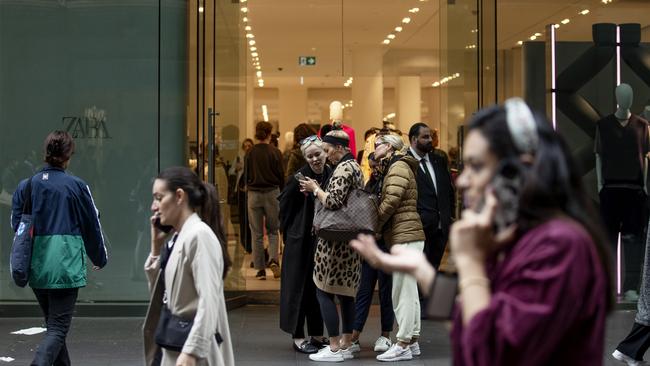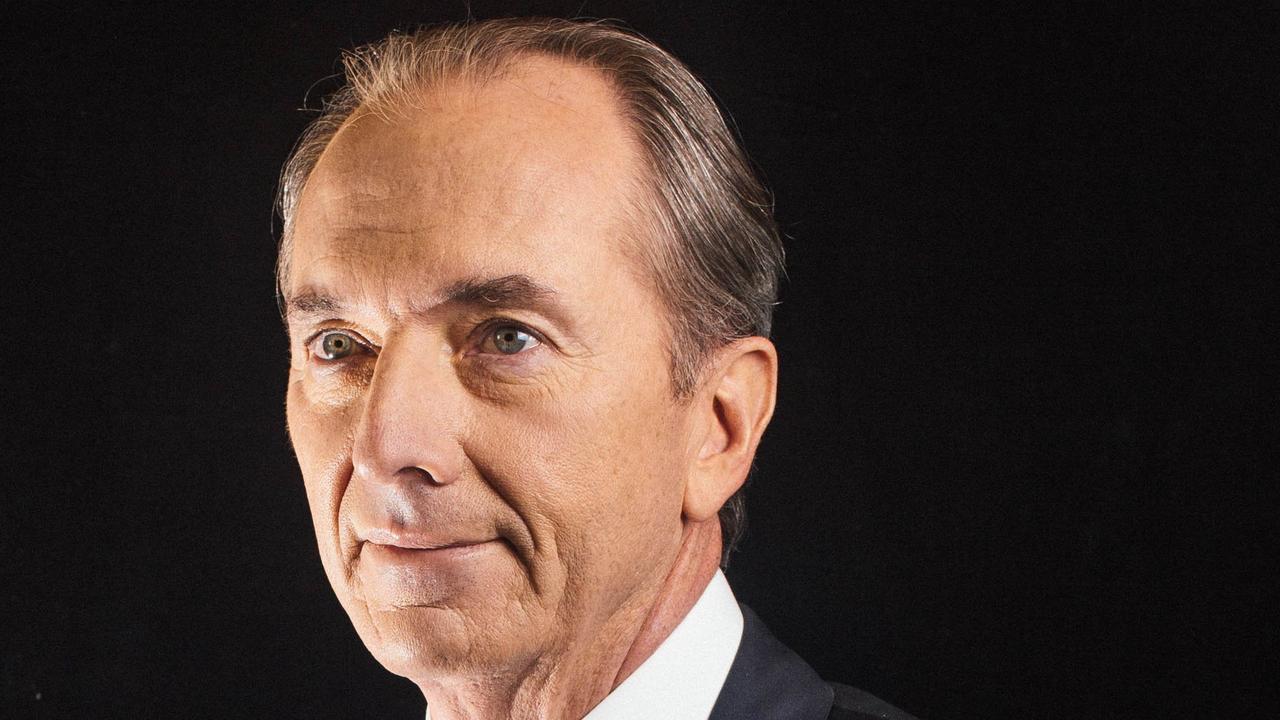Citi says fears a ‘mortgage cliff’ could see shoppers slow their spending could be overstated
Home borrowers are facing a ‘mortgage cliff’ this year as interest rates rise, but investment bank Citi believes most households will keep on spending at the shops.

Business
Don't miss out on the headlines from Business. Followed categories will be added to My News.
Fears of a looming mortgage cliff that will see consumer spending drastically drop as borrowers face steeper interest rates might be overstated, with only a small minority of low to middle income households exposed to the rollover from lower fixed rate mortgages to higher current rates.
Elevated mortgage repayments will only touch one in 10 households, and of these more than half are in higher income brackets, which will help them keep on spending at the shops, a report has found.
In fact, only 4 per cent of Australian households could actually face the real prospects of a mortgage cliff and forced to rein in spending.
And many households will be buffeted from the rollover of mortgages to variable rates by high savings rates, while the threat to domestic retailers from the return of travel spending could be more of a danger to their businesses than money sucked out of consumer pockets by higher mortgage repayments.
A new report from investment bank Citi estimates the combined impact of interest rate increases and normalisation of travel spending will impact domestic retail spending capacity by around $65bn in fiscal 2023 and roughly a further $18bn in 2024.

Citi analyst Adrian Lemme said the impact of travel normalisation looked to be more significant than the interest impact when accounting for the benefit of higher rates on deposits, which are up $346bn since the beginning of the pandemic.
“We estimate households typically spend around $50bn more on travel than what was spent in fiscal 2022. We expect domestic travel levels to fully normalise in fiscal 2023 and for international travel activity (inbound and outbound) to fully recover in fiscal 2024.”
Interest rate hikes by the Reserve Bank is now looming as one of the biggest threats to consumer spending with successive monthly rate rises between May and December – with many economists tipping another rate rise in February – ratcheting up the costs of home loans. This threat is expected to intensify within the next few months as many borrowers are rolled over from lower fixed rates to much higher variable rates – known as the ‘mortgage cliff’.
However, Mr Lemme believes this fear the mortgage cliff will slash away at consumer spending, and rob retailers of sales, might be overstated as many households primed to be hit with higher mortgage repayments have higher incomes as well as high savings.
“Retailer results remain robust. Yet fear persists of a significant deterioration in trading conditions in the second half as borrowers on low fixed rates roll over into higher current rates.
“We estimate this will impact about one in 10 households. Of these, about 60 per cent are in the two highest income quintiles, who are enjoying record high savings rates and the best growth in incomes. Therefore, low to middle income earners facing this mortgage cliff represent only around 4 per cent of all households.
“Moreover, even these households are better placed to manage this transition given their higher rates of saving than pre-Covid. Overall, we remain optimistic on the retail outlook relative to market expectations.”
Citi economists predict the official cash rate to peak at 3.35 per cent in 2023 against its current level of 3.1 per cent.
As the reporting season approaches, Mr Lemme believes consumer spending will beat market expectations again in fiscal 2023.
More Coverage
Originally published as Citi says fears a ‘mortgage cliff’ could see shoppers slow their spending could be overstated




